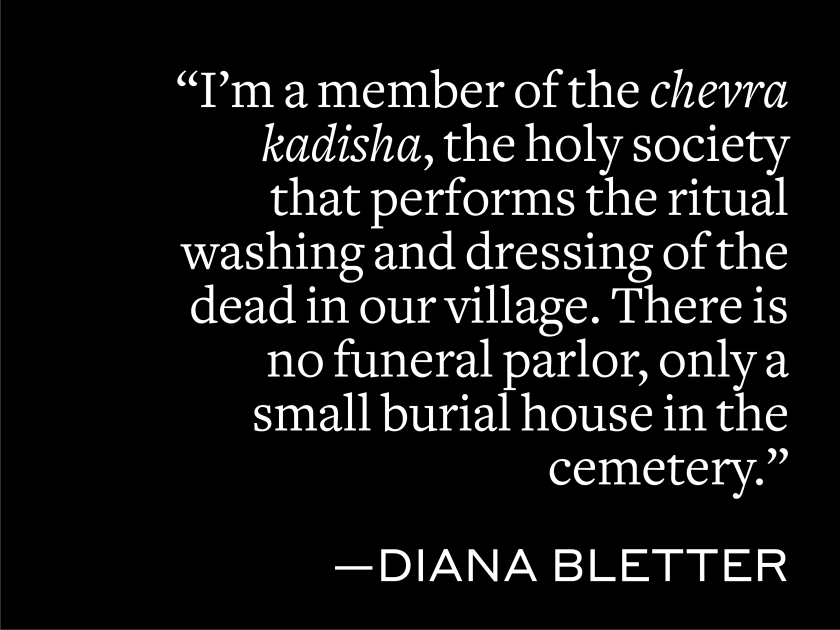Join a community of readers who are committed to Jewish stories
Sign up for JBC’s Nu Reads, a curated selection of Jewish books delivered straight to your door!

This piece is part of an ongoing series that we are sharing from Israeli authors and authors in Israel.
It is critical to understand history not just through the books that will be written later, but also through the first-hand testimonies and real-time accounting of events as they occur. At Jewish Book Council, we understand the value of these written testimonials and of sharing these individual experiences. It’s more important now than ever to give space to these voices and narratives.
In collaboration with the Jewish Book Council, JBI is recording writers’ first-hand accounts, as shared with and published by JBC, to increase the accessibility of these accounts for individuals who are blind, have low vision or are print disabled.
Jewish tradition teaches that the dead must be taken care of; and so we do, even as the war rages on between Hamas and Israel.
I rode my bicycle on a recent afternoon to the cemetery that sits at the edge of our village, Shavei Zion, in Western Galilee, Israel. I went to help prepare a neighbor, ninety-five-year-old Elma Erlenger, for her burial.
I’m a member of the chevra kadisha, the holy society that performs the ritual washing and dressing of the dead in our village. There is no funeral parlor, only a small burial house in the cemetery. In many small towns in Israel, it’s usually volunteers who handle the preparations for burials. In our village, the men take care of the men and the women take care of the women. We’re all volunteers. It is considered the greatest mitzvah, or good deed, that you can do for someone else, because the dead can never thank you. There are about 1,300 residents in Shavei Zion, which was founded in 1938 as a farming collective, and we usually know the women and their life stories.
Elma was born in Egypt, one of eight siblings. She spoke Italian with her father, who came from Corfu, and Greek with her Crete-born mother. Elma spoke French outside the house, and learned English in a high school run by Irish nuns. In 1946, she fled Egypt and came to Israel where she learned Hebrew; after moving to Shavei Zion, she married a man from Germany — and learned German.
She was well-liked and remained active in the community up until a few weeks before she died, when she cooked and baked for the Israeli soldiers who have been stationed in our village since the start of the war on October 7. That day, 3,000 Hamas-led terrorists infiltrated Israel from the land, air, and sea, killing more than 1,200 people, raping women and girls, and seizing some 240 hostages, many still being held captive in Gaza. The Hamas massacre echoes so many other attacks against Jews throughout history. In fact, two years after Elma left Egypt, Egyptian mobs killed three rabbis by splitting their throats in a Cairo slaughterhouse, and murdered more than one hundred other Jews, often in gruesome ways.
Shavei Zion, set on the Mediterranean Sea, is about thirty-eight miles north of Haifa and ten miles south of the border with Lebanon. We’re not in the firing range of Hamas, but we are in the scope of Hezbollah, Iran’s proxy terror army, which has more than 150,000 missiles and rockets pointed in our direction. Hezbollah soldiers have publicly vowed to infiltrate our area and commit equally brutal atrocities. Our village is on high alert. We know that we are targets. We could be next.
In the burial house, we said introductory prayers and then washed Elma from her head to her feet. We sprinkled water starting from the right side and then the left. Kabbalah, Jewish mysticism, explains that the right side is the side of mercy; the left side is of judgment. One last time, we combed Elma’s hair, and then covered her face with a head bonnet. We gently dressed her in special cotton shrouds. We tied the simple garments without knots because, it is taught, that is how the soul can escape.
When we finished, we asked Elma for forgiveness if we hurt her in any way.
One of the women in the chevra kadisha is in a WhatsApp group that receives a different psalm each day. The psalm for that day was Psalm 121, and she sang out in a lovely voice, “God will guard you from all evil, God shall protect your soul.”
While I stood there, listening, I felt an odd sense of peace in the midst of the war. I thought about how volunteers in Israel spent weeks after the October 7 slaughter – after Hamas terrorists raped and beheaded women, cut off babies’ limbs – trying to find pieces of the victims’ bodies to be identified and then buried. Each part of the body is holy.
Elma was lucky to die with dignity, her body intact.
She was about to be lowered into the earth, in one piece.
I couldn’t help feeling relieved. She was safe.
The views and opinions expressed above are those of the author, based on their observations and experiences.
Support the work of Jewish Book Council and become a member today.
Diana Bletter is a National Jewish Book Award nominee and author of several books, including A Remarkable Kindness and The Loving Yourself Book for Women. Her work has appeared in Commentary, The New York Times and The Wall Street Journal.